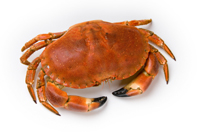
Three year programme extension for Made Smarter
RMIT University researchers are using a natural biopolymer found in crustaceans to create odour-repellent fabrics for use in the automotive industry. The researchers are studying how specialised fabrics could provide smart solutions for car interiors, resisting odours and staying cleaner for longer. Dr Rajiv Padhye, Discipline Head, Higher Education in the School of Fashion and Textiles, said the researchers were working on various concepts for a number

2nd February 2010
Innovation in Textiles
|
Brunswick, Australia
 RMIT University researchers are using a natural biopolymer found in crustaceans to create odour-repellent fabrics for use in the automotive industry. The researchers are studying how specialised fabrics could provide smart solutions for car interiors, resisting odours and staying cleaner for longer.
RMIT University researchers are using a natural biopolymer found in crustaceans to create odour-repellent fabrics for use in the automotive industry. The researchers are studying how specialised fabrics could provide smart solutions for car interiors, resisting odours and staying cleaner for longer.
Dr Rajiv Padhye, Discipline Head, Higher Education in the School of Fashion and Textiles, said the researchers were working on various concepts for a number of automotive companies. “These include automotive fabrics that have anti-odour and antimicrobial properties, and anti-stain fabrics,” Dr Padhye said.
For the anti-odour research, various fragrance oils were applied to 100 per cent polyester woven automotive fabric , the predominant fabric used in the industry, in combination with chitosan.
Chitosan a natural biopolymer sourced from the structural element in the exoskeleton of crustaceans such as crabs and shrimps was selected because of its film forming ability and antimicrobial attributes. The study found combining chitosan with the fragrance oil produced a durable fragrance finish in the fabric and gave it excellent antimicrobial properties. Masters student Saniyat Islam carried out the research under the supervision of Dr Olga Troynikov.
“We would also like to undertake research on reducing the consumption of fuel by running car air conditioners for shorter periods of time using phase change materials (PCM) in car designs,” Dr Padhye said. “These materials will help to have a big impact on environmental issues,.”
Based in Brunswick, RMIT’s School of Fashion and Textiles is a major provider of education and training for the textiles, clothing and footwear industry, both in Australia and internationally. The School’s core research focuses on digital design and technology for functional performance textiles, with research clusters based around advanced technology, performance and sports apparel textiles, fashion and merchandising, sustainability, and textile design. Projects range from intelligent protective textiles to wearable technologies and textiles for monitoring human body performance.

Business intelligence for the fibre, textiles and apparel industries: technologies, innovations, markets, investments, trade policy, sourcing, strategy...
Find out more